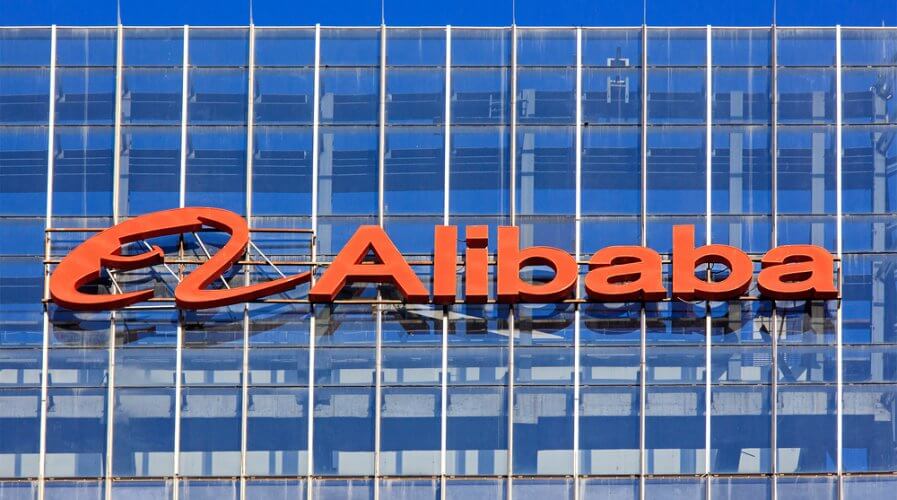
Jack Ma opened the SEA office in Kuala Lumpur yesterday. Source: Shutterstock
Alibaba opens first Southeast Asia office in Malaysia
YESTERDAY, Alibaba Group executive chairman Jack Ma, launched the company’s first office in Southeast Asia in Kuala Lumpur, Malaysia.
The national office marks a new chapter in the company’s deepening strategic cooperation with Malaysia, and is the first eWTP hub outside of China.
“Alibaba’s focus is on three areas when we partner with Malaysia as well as other countries – to digitize our local partners and empower small businesses and young people to go global.”
“Over the past 30 years, only large corporations have benefited from globalization. Imagine if we can support 60 million small business around the world; this is Alibaba’s vision of an inclusive and sustainable economy,” Ma told the audience at the Alibaba office opening ceremony in Bangsar South, Kuala Lumpur.

Source: Alibaba
The opening of the Malaysian office is part of the Chinese e-commerce giant’s continued endeavor to bolster the technology capability of Malaysian SME’s and young entrepreneurs, provide support and platforms to assist them to drive exports and to offer extensive training opportunities to help them take full advantage of digital innovations and trade opportunities.
“Working closely with the Malaysian government, we will support and empower as many small businesses and young people as possible to use technology to become local kings and benefit from globalization. This is the beginning of our story in Malaysia and I think Alibaba’s story will be long and we will make this story together,” Ma added.
China is shifting from exporting to importing
In his speech, Ma said Alibaba will be putting effort into promoting Malaysian products on the platform.
“China needs to import more things,” Ma told the audience.
To mark the occasion of the new Malaysian office, Alibaba will hold a “Malaysia Week” from July 6th to July 12th, in which an array of Malaysian products will be on offer, from its durian to the best tourist destination.
The online promotion is part of Alibaba’s aims to raise the profiles of Malaysia’s tourism attractions and its products to Chinese consumers.
“The Malaysia Week symbolizes that we would like to introduce more Malaysian products to Chinese consumers, and this is the first time we spent one week to promote one country,” Ma explained.
We want every Chinese consumer to understand more about Malaysia and Malaysian products
Last year, over 160 million Chinese individuals traveled outside of the country. Ma told the audience how he hopes the “Malaysian week” will attract more tourism to Malaysia, and compared it to the 11:11 Single’s Day shopping festival.
“We hope to continue to do Malaysia week for ten years. We are not only helping Malaysia small businesses export to China, but we will bring a lot of Chinese tourism here… which is a good thing or bad thing, I don’t know,” Ma jokes with the audience.
Ma meets Mahathir
During the opening ceremony, the Chinese billionaire also discussed his meeting with Malaysia’s Prime Minister, DR Mahathir Mohamad he had earlier that morning.
Ma described it as a “fantastic and great meeting”, putting to rest rumors that Malaysia’s recent government revamp would undo Alibaba’s e-commerce investments.
Prior to being elected as prime minister, Dr. Mahathir pledged to scrutinize Malaysia’s current ventures with China, believing that they would not benefit the country.
But all seems well between Ma and Mahathir after their Monday morning meeting. Ma even told the audience how his inspiration for Alibaba Malaysia stemmed from the Multimedia Super Corridor (MSC) implemented by Mahathir during his first stint as PM to promote high technology enterprises.
Meet up with Jack Ma, The founder of Ali Baba at The Prime Minister Office this morning. We had a good exchange of ideas on a wide range of subjects. pic.twitter.com/znqjlUHnci
— Dr Mahathir Mohamad (@chedetofficial) June 18, 2018
“He (Mahathir) is a legend. 93 years old but he has such a great vision and knowledge of technology. After talking to him, I should read more books,” Ma laughed with the audience.
“We share a lot of similarities. We believe in the internet. We believe in supporting and empowering the young, poor and rural folks.”
So, while the Alibaba-Malaysia partnership may have been a match made under the previous government, it seems that the transformation of Malaysia’s digital landscape is going full-speed ahead.
READ MORE
- China’s window into Southeast Asia’s digital scene through Malaysia
- Indonesia’s e-commerce landscape: Bigger market, bigger challenges
- How are online retailers transforming themselves?
- Singapore: A distinct e-commerce market in SEA
- Key takeaways from the map of e-commerce Malaysia




